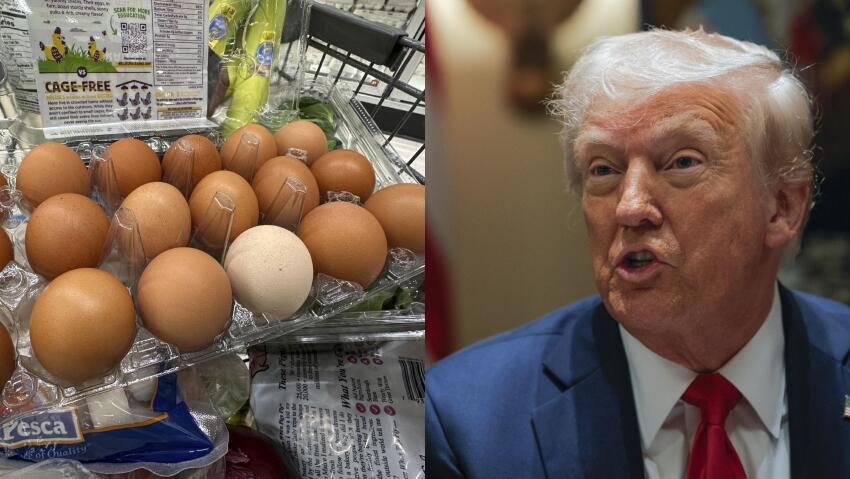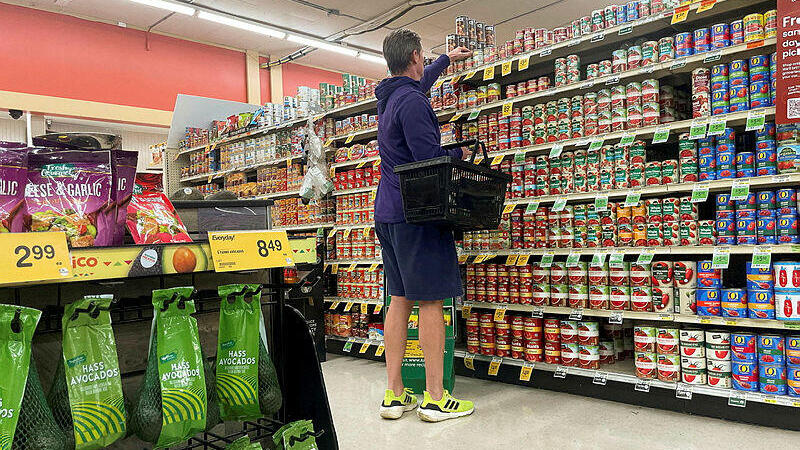Egg prices, which surged by dozens of percentage points across the U.S. last year, have become a symbolic issue in Donald Trump’s presidency. The former president had promised to bring prices down on his first day in office but later admitted: “It’s very hard to lower the price of something once it has already gone up.”
A month and a half into Trump’s term, egg prices continue to climb daily, with a clear shortage in major supermarket chains, which have begun limiting the number of eggs per customer. Consumers are stocking up, filling their refrigerators with large cartons.
Last month alone, egg prices hit a record average of $4.95 per dozen—more than double the long-standing average of under $2. In major American cities, the average price is even higher. The outbreak of avian flu has led to the culling of more than 166 million birds, wiping out approximately 30 million eggs since January. As a result, the nationwide egg supply dropped by 12% as of February 1. Since then, at least 11 million more eggs have been lost.
Last week, the U.S. Department of Agriculture announced a new plan to curb avian flu, which includes strengthening biosecurity measures at egg-laying farms and helping farmers recover more quickly after losing their flocks. A temporary approval for egg imports is also being considered. “We expect prices to rise even further until Easter,” Agriculture Secretary Brooke Rollins told CNN. “But I hope we’ll start seeing a decline by summer.”
Record profits for egg producers
Egg producers blame the avian flu outbreak, which has persisted for nearly two years. This is especially true for small-scale farmers, who risk losing their entire business if the virus hits their farms. However, in corporate America, large companies are taking advantage of the crisis to boost their profits at the expense of struggling consumers.
Most dominant egg producers are privately owned, but the largest company, Cal-Maine Foods, is publicly traded — and its profits have soared. Cal-Maine controls about 20% of the U.S. egg market, supplying Walmart and other major retailers. The company reported that its revenue skyrocketed to $954 million in the quarter ending in November, up from $523 million the previous year — an 82% increase. Its net profit surged by more than 500% to $218 million. Prices have continued to rise since the company’s last earnings report.
Get the Ynetnews app on your smartphone: Google Play: https://bit.ly/4eJ37pE | Apple App Store: https://bit.ly/3ZL7iNv
Sherman Miller, president and CEO of Cal-Maine, said high market prices “continued to rise as supply levels remained constrained due to highly pathogenic avian flu, but we also sold significantly more eggs—about 330 million compared to 288 million the previous year.” He added that Cal-Maine itself had experienced only a few flu outbreaks in its farms.
Over the past three decades, the U.S. egg industry has come under the control of a handful of major corporations. Cal-Maine has acquired more than 20 smaller companies since 1989 and supplies Walmart, among others. It and four other major producers control roughly half of the market. The second-largest producer, Rose Acre Farms, operates 17 facilities across seven states in the South and Midwest. Another major supplier, Daybreak Foods, provides eggs to McDonald’s, while Hillandale Farms sells eggs under its own brand and private labels at grocery stores.
Lawmakers call for an investigation
The CEOs of these companies rarely speak to the U.S. media. Emily Metz, president of the American Egg Board, dismissed allegations of price manipulation, telling the Associated Press: “This has nothing to do with anything except avian flu. Our farmers are in the fight of their lives, period. They’re doing everything they can to keep these birds safe. We are in a crisis due to low supply caused by avian flu — nothing else.”
But concerns over possible price gouging are not unfounded. Just two years ago, a jury in a class-action lawsuit ruled that major egg producers had artificially inflated prices in the 2000s. Now, some lawmakers are calling on federal regulators to investigate the industry.
“Egg producers and grocery stores may be using the current avian flu outbreak as an opportunity to further restrict supply or drive up prices to increase profits,” read a letter sent to Trump by several Democratic senators, led by Elizabeth Warren of Massachusetts.
“Trump promised to lower food prices ‘on day one,’” Warren told reporters. “But as egg prices spiral out of control, he and Elon Musk have fired the people whose job it was to contain the avian flu outbreak.”




